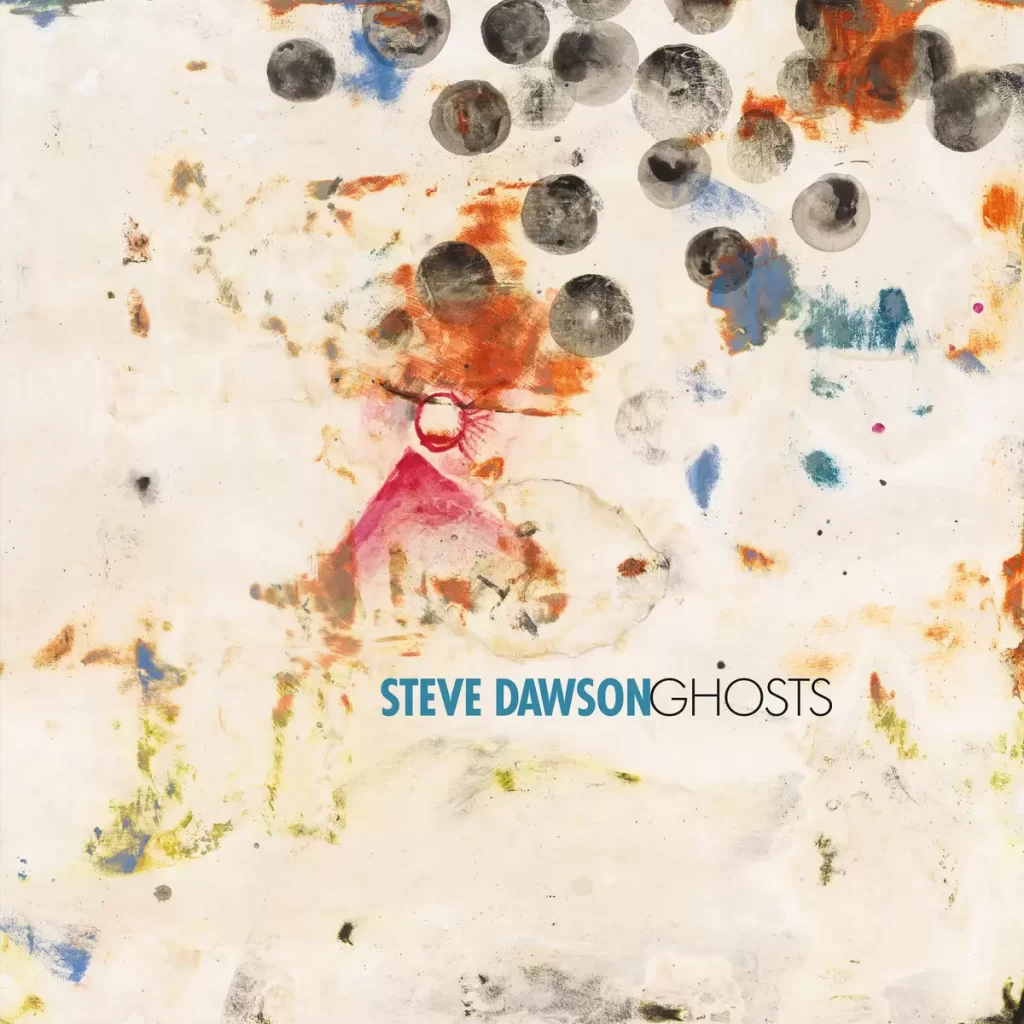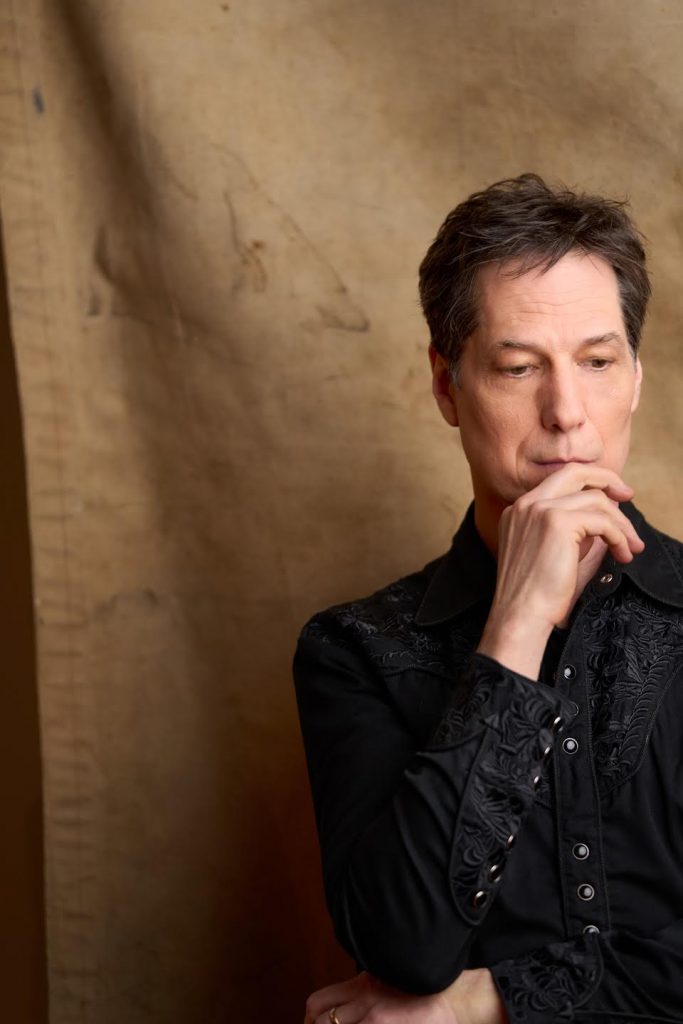Ghosts is the sixth solo album from Chicago-based musician and songwriter Steve Dawson. It’s out now via venerable Chicago label Pravda Records on CD, 12” LP vinyl, digital download and on streaming platforms. On the new effort, Steve, renowned for his impassioned alternative country work with Dolly Varden, presents ten tracks that explore reasons to believe—in music, in human connections, and in the expansive beauty of desert vistas. Even as the ghosts of the past linger around him, and around all of us, these spectral presences become a source of hope. The album poignantly weaves these themes together, showing how the echoes of the past can inspire and sustain us.

“I’m very aware the opening song says, ‘The past is gone,’ and then the rest of the album digs through the past,” Dawson says. “It was a conscious decision that reflects how it works for me (and others, I assume) where you decide to move on but ghosts from the past keep showing up.” That they do. Largely written between 2017 and 2023, these ten songs combine intimate confessions and tightly constructed narratives – deeply rooted in Steve’s personal experiences.
For vocal harmonies, Dawson enlisted close friends Nora O’Connor (vaunted Chicago singer who tours with the likes of Neko Case and Andrew Bird) and Ingrid Graudins, who passed away unexpectedly shortly after that recording) and, of course, Diane Christiansen, his wife and artistic confidante of 35 years. The ensemble also includes Alton Smith on piano, Chris Greene on saxophone (who Dawson worked with in a classic soul band called the Soul Avengers), and trumpeter John Moore. And finally, veteran Chicago musician Brian Wilkie contributes the pedal steel that surges through so many songs.
One standout, “Leadville,” draws from his upbringing in Hailey, a small Idaho town near Sun Valley. The song channels a raw country-rock vibe, with no punches pulled. Steve remarked in a recent ABS interview, “’Leadville’ seems to be resonating particularly with a lot of guys. It’s fascinating to me and to my wife. There’s this undercurrent of middle-aged men reflecting on the environment we grew up in, which has evidently struck a chord.”

Premiering exclusively today is the video for “Leadville.” Steve tells ABS about the songwriting process:
This is probably the angriest I’ve been in a song in quite a while and I’m sure it’s because of the current political situation in the United States. There have been a handful of country songs celebrating ‘small town values’ over the last few years and I felt compelled to tell my experience of living in small town America in the 1980s. ‘Leadville’ is about growing up in small town Idaho. It’s all true from my experience, though I changed some of the people around a bit to make it a slightly more streamlined and singable narrative. For instance, the ‘stone cold racist’ wasn’t the school bus driver, it was the history teacher, which is actually worse. But I didn’t want two verses set in the school, and I felt I had to include the Christian hypocrites who ran the school.
I nearly didn’t record this song because of its finger-pointing nature and I felt uneasy about using vulgar language, etc. I got reassurance from people I played it for, though, and I really appreciate that. And, boy, in every review and every interview this song more consistently than any other is singled out. I guess it’s struck a nerve, which I find fascinating. America mythologizes and romanticizes ‘small town values’ full of tough, hard-working men with character and integrity and women who sacrifice for their family and stand by their man through and through. But it’s just that: a myth. The truth is much different and often dark and troubling. Of course there are wonderful people in small towns, but just like anywhere else, there are lots of awful people, too. What strikes me most about the people I knew back then was their lack of curiosity about anything outside of their lives, and a lot of judgment about anyone who thought differently.
When I’ve sung this song over the years someone always comes up to me and says something like, ‘That could be my hometown.’ It’s a throughline and, clearly, my experience is in no way unique. Racists, Christian hypocrites, misogynists, toxic male posturing and deeply boring bragging.
I’m still slightly uneasy about the song, but I’m happy that people are responding to it. And doesn’t Gerald Dowd sound great singing the high harmony? And Brian Wilkie on the steel elevates it more than I could have imagined. I’ve loved country music since I was a teenager, by the way. Favorites are George Jones, Merle Haggard and Buck Owens. I’m playing the Telecaster riffs and I overdubbed an organ. Drums, bass, my acoustic guitar, Brian’s pedal steel and the lead vocal were all tracked live to tape.
Steve reflects, “My last album was pretty much all me. It was recorded and mixed mostly during the pandemic—I played all the instruments and sang all the parts, except for Diane on one track and my friend Alton Smith on keys for another. For this album, I wanted to do something different. I aimed to assemble a ‘dream band’ of incredible Chicago musicians I’ve worked with over the past 15 years.
He continues, “Many of my favorite albums were recorded live in the studio—Neil Young’s Zuma and Tonight’s the Night, all the 1970s Dylan records, and the Band’s second album, for example. For this new project, the arrangements were crafted on the spot. Instead of layering overdubs, the album captures the essence of a live performance.”

